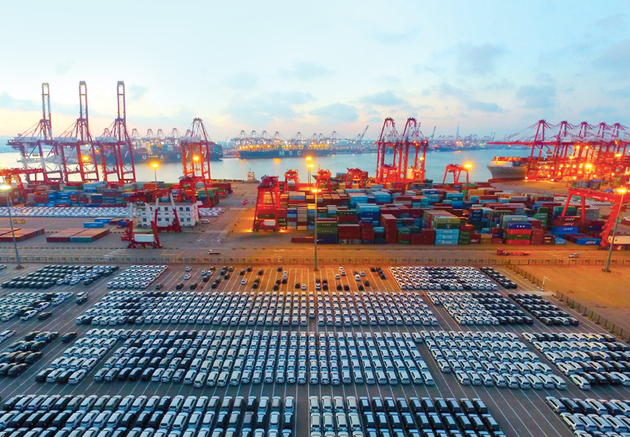
File photo/VCG
Sept. 5 (NBD) -- China is expected to overtake Japan as the second largest market for Japanese-branded automobiles for the first time this year, according to Japanese media.
From January to July this year, new car sales of 7 major Japanese carmakers totaled 2.65 million units in the Chinese market, up 5 percent year on year. If the trend continues, their sales in China may hit 5 million units by the year end. Meanwhile, their full-year sales in Japan are projected to be around 4.9 million.
The strong growth momentum in China and increasing saturation of the U.S. market - the largest market for Japanese cars - are pushing Japanese automakers to place more emphasis on the Chinese market.
Nissan CEO Hiroto Saikawa noted that Nissan hopes to become the third largest carmaker in China, following Volkswagen and General Motors.
Dongfeng Motor Corporation recently gained approval to expand its passenger car project in Wuhan, Hubei province, and the expansion is designed to improve Dongfeng Nissan's production capacity in China. Scheduled to be completed in December 2022, the project will be able to produce 300,000 passenger cars annually.
A source said Toyota will triple its production capacity in China to 3.5 million cars from the current 1.16 million, and meanwhile, it will increase the number of cars exported to China to 500,000 units by 2030.
The adjustment of Japanese carmakers comes as the Trump administration is considering to impose a 25 percent tariff on imported cars and automobile parts.
Toyota says that if the tariff takes effect, the cost of each car manufactured in the U.S. will increase by 1,800 U.S. dollars, and the cost of each car exported to the country will increase by 6,000 U.S. dollars, which is equivalent to 20 percent of the average selling price of the company's new cars in the region.
Japanese automobile analyst Koichi Sugimoto said Toyota's concern shows its worries about the future, noting that if Japanese auto companies have to find a new export destination due to the tariff policy of the U.S., Asia will be a good alternative thanks to its geographical proximity and growth potential.
It is noted that new energy cars are development priority of Toyota, Honda, and Nissan in China. Toyota, for example, is set to launch 10 electric car models by 2025, and the first electric model designed for the Chinese market will be introduced in 2020.
The first all-electric car under the Nissan brand, the Sylphy Zero Emission, was rolled off the line in Guangzhou in late August. According to the development plan, Dongfeng Nissan plans to bring in 20 new electric car models by 2022.
Honda aims to launch at least 20 electric car models by 2025. MIZUNO Yasuhide, chief of Honda's China operations, once said the company will release electric cars specially designed for the Chinese market in 2018 with its joint ventures in the country.
Email: tanyuan@nbd.com.cn


 川公网安备 51019002001991号
川公网安备 51019002001991号





